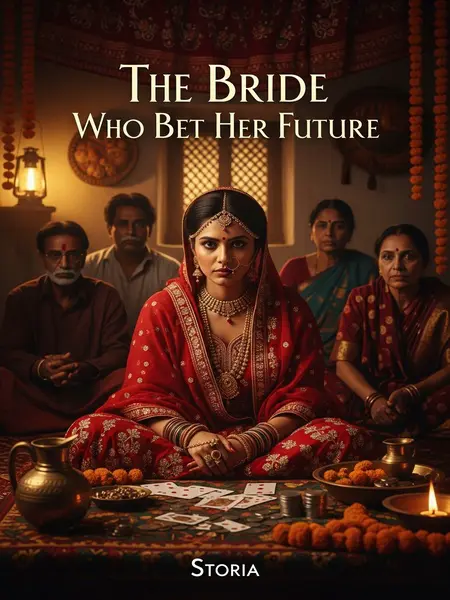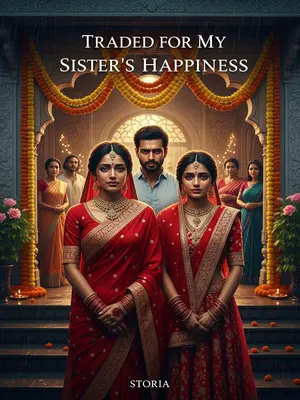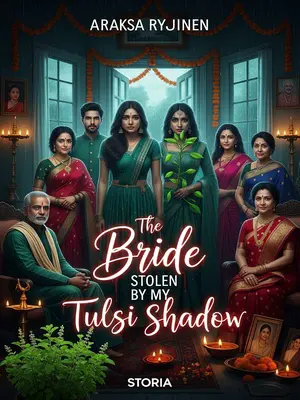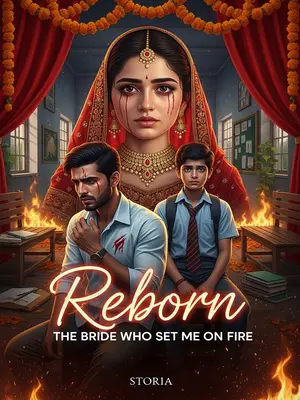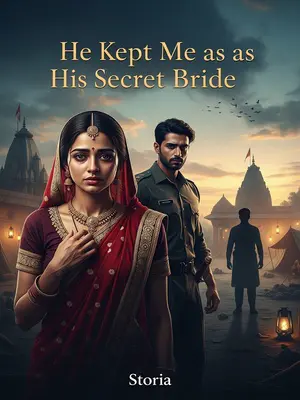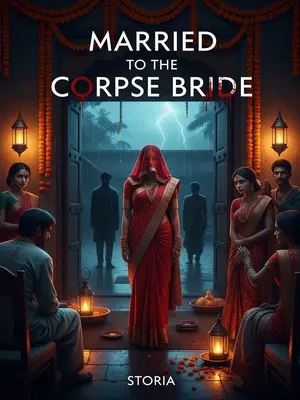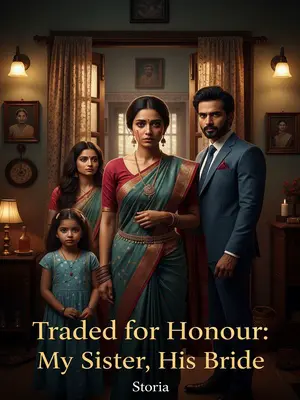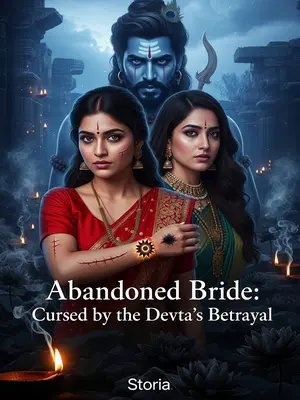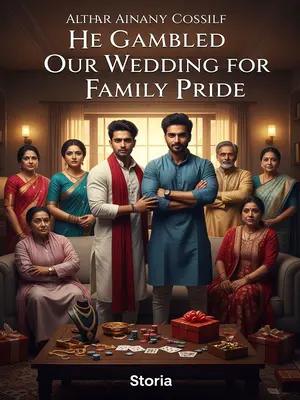Chapter 3: The Bride's Gamble
“Ruko.” I pressed the paper and pen to the table. “Chacha ji ne khud bola, aur khelo, shayad jeet jao. Khel khatam nahi, IOU kyu likhna?”
The room stilled. My father trembled, “Kya karogi?”
“My husband is drunk. Main khelungi uski jagah.”
My voice was clear, challenging. A ripple ran through the room.
“Beta, tu toh kabhi khelti nahi thi. Kaise khelegi?”
I laughed. “Mere pati ne bhi toh kabhi nahi khela tha. Aap sab ne hi toh sikhaya?”
“No, no,” Mausi protested, “Aur haari toh?”
I pulled out my house keys. “Mera naya flat, abhi abhi renovate hua hai—chhabbees lakh ka. Khel sakti hoon na?” The keys clinked on the table. Gasps rippled through the crowd.
“Sach keh rahi ho?”
I met their eyes, steady. “Mausi, aapne mujhe bada hote dekha hai. Kya kabhi jhooth bola hai?”
She faltered, looking for someone to stop me. No one did.
My mom, revived, rushed to drag me away. My brother tried to reason. My father, eyes red, pleaded, “Dus mein se nau haarta hai. Table pe baithe toh bhoot ban jaata hai.”
They were right. I remembered all the ruined families, all the ghosts created by gambling. But today, I wasn’t gambling for greed—I was fighting for my future.
After years away from home, I’d seen people ruined by cards. I never thought it would be me, not here, not on my wedding day, not by my own kin.
But I can’t leave. If I step out, this debt will hang over us forever. My parents, my brother, my marriage—all tainted. I couldn’t let them write my story.
Once my husband sobers up, he’ll know the truth about my relatives. If I don’t fight now, even he won’t forgive me. I can’t let our happiness be destroyed by a handful of greedy people.
If they don’t treat me as family, I won’t treat them as people.
I dragged my husband up, shoved him at my brother, and took my place at the table. My voice rang out, “Jo abhi mere pati ke saath khela, koi nahi jayega. Agar koi gaya, toh saari rashi maaf. Jeetne wala beech mein bhaage, toh paisa wapas.”
Everyone knew these were the unspoken rules—no one objected.
“So, continue?” Chacha ji glanced at Mausi.
“You’re really ziddi,” Mausi sighed, sitting down.
“Main bhi khelunga,” Chacha ji said, facing me. My cousin, Dadaji’s brother, and Daulat all sat back down.
“Chacha ji, kya game?”
“Teen patte. Trail sabse bada, phir pure, sequence, colour, pair, high card.”
“Dealer kaun?”
“Jeetne wala.”
“Toh main shuru karti hoon.”
I picked up the cards—ordinary, worn, edges soft, talcum powder scent lingering. I let my fingers linger, recalling every trick I’d learned, every game I’d watched. Even so, my husband lost everything. I cursed him as a donkey in my heart.
I pretended to shuffle awkwardly, dealt three cards to each player. I fumbled, playing the clueless bride. All eyes were on me—some mocking, some pitying. Good.
“Dealer ko daav lagana hota hai,” Chacha ji said sharply.
Mausi chimed in, “Matlab pehla daav aapka.”
“Dus hazaar.”
I tossed in a chip. The room tensed.
Dadi’s sister’s husband locked the door. The air grew thick. Some people rubbed their hands, others hid their excitement. Everyone was gathered here. A cousin sneaked a gulab jamun from the dessert table; a grandmother in the corner counted her prayer beads, lips moving silently.
I never imagined my wedding day would end at the card table, fighting for my family’s future.
But none of them knew what I’d really been doing all those years away from home.
I looked at my cards, a slight smile on my lips. The room held its breath. The game had truly begun.
I was a card player. Tonight, I’d show them what a village daughter could do.
